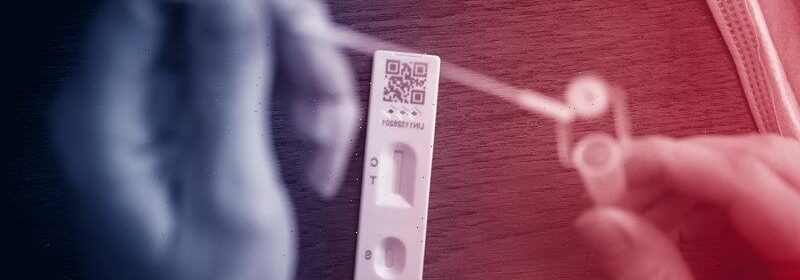No more free RATs despite push to retest sooner

Vulnerable Australians will lose access to free rapid antigen tests by the end of this month just as health authorities warn the risk of reinfection with the virulent subvariants is just 28 days.
Pharmacists have criticised the federal government for refusing to extend the free RAT scheme for concession card holders amid the accelerating spread of the B.4 and B.5 omicron subvariants and a new directive from NSW Health that symptomatic people retest themselves four weeks after contracting COVID and isolate again if positive.
Concession cardholders have just over two weeks to claim the last of their free tests before they must pay full price for the test from August 1.
Pharmaceutical Society of Australia National President Dr Fei Sim said the decision not only puts at risk elderly pensioners and disadvantaged families, but it also sends the wrong message to the public.
“The pandemic is not over, and the threat of serious illness is still there for many vulnerable people in our communities. Testing remains a vital part of our COVID-19 response,” Dr Sim said.
“Let’s not forget that case numbers and hospitalisations are still rising every single day. Governments should be encouraging more testing, not less,” he said.
A positive RAT or PCR is a prerequisite for access to antiviral medicine.
“We cannot simply remove the main method of testing that’s accessible to these vulnerable groups. The result will be a lot of people not testing at all,” Dr Sim said.
But Health Minister Mark Butler said the expiry of the three-month scheme was “about the right time,” saying tests were now affordable and easily accessible.
Health Minister Mark Butler said it was the right time to end the free RAT scheme.Credit:Alex Ellinghausen
“The price has come down dramatically,” Mr Butler told Melbourne’s 3AW radio on Tuesday.
“They were running on average at $24 or $25 per test if you could get them in January. They’re now down around about $8 a test,” he said.
He recommended concession card holders claim their allocated 10 free tests before the end of the month.
RACGP President Adjunct Professor Karen Price said $8 for a test was a considerable expense for many people.
“When you factor in that someone may have to take multiple tests over numerous days you can see how it quickly becomes unaffordable, Price said. “If people can’t access RATs, our entire health system will come under even more immense pressure.
‘Case numbers and hospitalisations are still rising every single day. Governments should be encouraging more testing, not less.’
“With COVID-19 case numbers climbing across Australia and limited PCR testing available, it is critical to ensure as many people as possible can access RATs when they need to.
Free rapid antigen test kits are still currently offered at some state-run testing sites in NSW and Victoria.
Meanwhile, NSW Health’s decision to shorten the COVID reinfection period from 12 weeks to four means anyone symptomatic 28 days after testing positive must retest and isolate if their result is positive again.
Those people will be counted as new cases and must isolate for seven days, NSW Health said.
NSW Chief Health Officer Dr Kerry Chant said the subvariants were more able to evade immunity gained from previous infection and vaccination.
“Reinfection is more likely and possible just weeks after a prior infection,” Dr Chant said.
NSW Health is also monitoring a cruise ship with more than 100 COVID-19 case among its 2300 passengers and crew which is scheduled to dock in Sydney on Wednesday.
The Coral Princess – sister vessel of the Ruby Princess that spawned more than 900 COVID cases – has been designated ‘amber’ status by NSW Health, defined as a moderate outbreak (between 30 and 99 positive cases per 1000 people) that has impacted the vessel’s staffing or resourcing, but it can safely maintain its critical services.
NSW Health Deputy Chief Health Officer Dr Jeremy McAnulty said passengers will be requested to return a negative RAT result before disembarking, but testing would not be mandatory.
Passengers and crew members have tested positive for COVID-19 on board the Coral Princess.Credit:Getty Images
“We have moved away from a lot of mandatory things, and it’s [about] personal responsibility. It’s about people looking after people,” he said.
NSW Health advised passengers on shore tours will also be asked to wear masks when on transport or in other public indoor spaces, physically distance wherever possible, and to regularly use hand sanitiser.
More than 100 people had been confined to their cabins on the ship by Tuesday. The vast majority of the COVID-19 cases on board are crew members, NSW Health said.
COVID-19 cases continue to rise in NSW. On Tuesday 2049 people were in hospitals with COVID-19, compared to 1255 COVID-19 patients at the same time last month.
The Morning Edition newsletter is our guide to the day’s most important and interesting stories, analysis and insights. Sign up here
Most Viewed in National
From our partners
Source: Read Full Article

